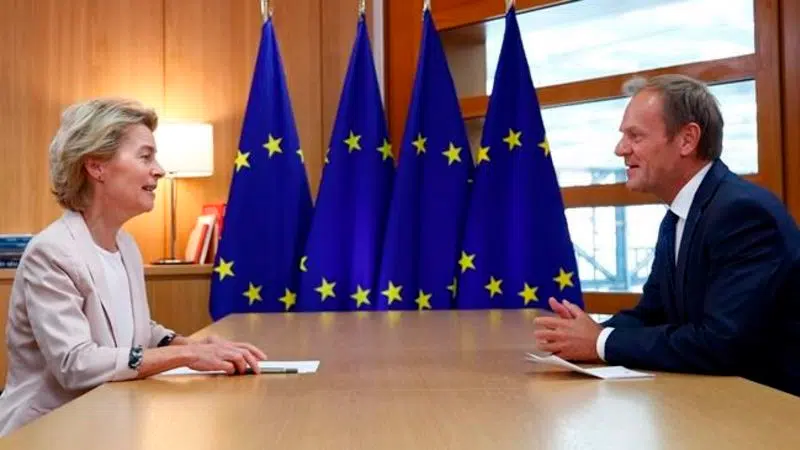
EU chief struggles to sell job winners to hostile lawmakers
BRUSSELS — European Council President Donald Tusk appealed Thursday to hostile lawmakers to endorse a raft of nominees for some of the EU’s most coveted jobs amid accusations that he and the bloc’s leaders hand-picked the candidates in a series of shady backroom deals.
Two days after one of the longest-ever EU summits — beating even the all-nighters that marked the Greek debt crisis — Tusk struggled to convince the European Parliament of the credentials of candidates chosen more for political reasons than for their competence.
German Defence Minister Ursula von der Leyen was nominated to take over as head of the EU’s powerful executive arm, the European Commission, which proposes and enforces EU laws. It’s the first time a woman has been picked for the job, and would mark the first time a German has led the commission in decades.
“We managed to make these decisions on time,” Tusk said, as part of his effort to persuade the lawmakers meeting in Strasbourg, France, that von der Leyen and the three other nominees pass muster. “I believe they are good choices.”
